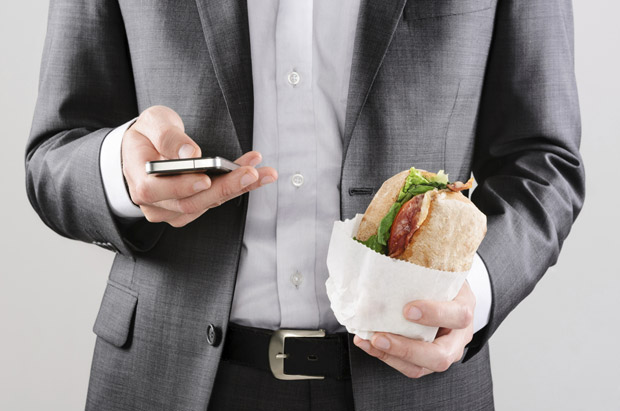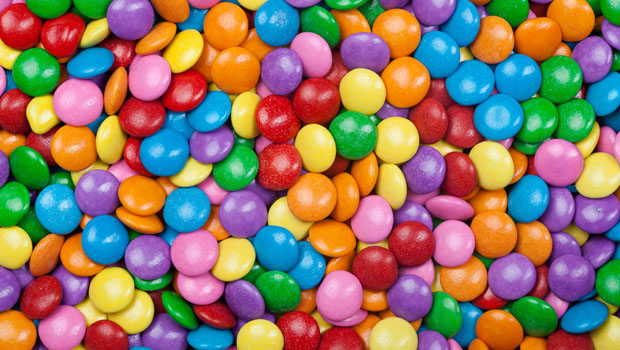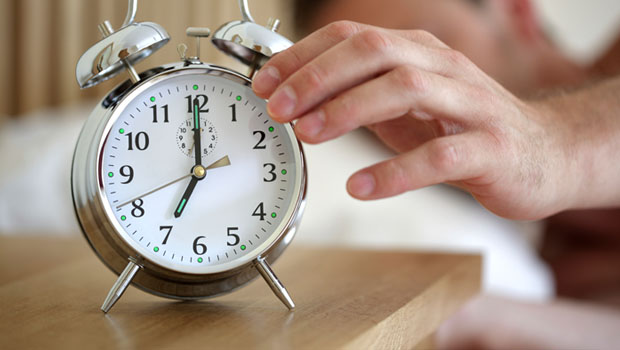Diet Tricks: What Works and What Doesn’t

Weight loss is a billion-dollar industry in this country and everywhere you look, people are trying to sell you something to make it quick and easy. Any doctor will tell you that the best way, the only way, to lose weight and keep it off is to eat less, exercise more, and make permanent healthy lifestyle changes. However, that doesn’t stop marketers, researchers, scam artists, and wishful thinkers from filling the internet and the airwaves with the latest diet tips, tricks, and fads. Is there any truth to these crazes? Some are hokum and others may have some real benefit. Here’s the low-down on a few:
Miracle Diet Pill – Verdict: Too Good To Be True
The internet is littered with ads for diet supplements promising that this one pill will take off the pounds without any effort on the part of the dieter. They promise “Lose weight with this 1 weird old tip” or “Eat THIS, Never Diet Again.” Jessica Crandall, registered dietician and certified diabetes educator at Denver Wellness and Nutrition, cries foul. “If there was a magic pill out there for weight loss, everyone would be taking it,” she says. She cautions that even if these pills do work in the short-term, the weight loss is not likely to last long. However, the news may not be all bad when it comes to pills and supplements. “There are tools and some over-the-counter options, some prescription medications, that, with your doctor’s guidance, are appropriate for some people,” says Melissa Joy Dobbins a registered dietician and certified diabetes educator at Sound Bites in Chicago. The takeaway on this one is that if you see something advertised and you’re tempted to give it a try, reach for the phone to call your doctor or nutritionist before you reach for your wallet.
Don’t Eat Close to Bedtime – Verdict: Debatable
 Cutting out late-night snacking is an old standby when it comes to advice on how to lose weight. Conventional wisdom holds that eating before bed means that your body will store more calories as fat because you’re not moving around and burning calories while you’re sleeping. According to Dobbins, this idea makes sense, but eating before sleeping may not be any worse than having a big breakfast and then spending the day sitting at a desk. “If we eat food to fuel our exercise or an active lifestyle, that’s the best case scenario…but if we don’t do anything with that energy we’re putting in our body, it just gets stored as fat,” Dobbins says. A recent study at Brigham Young University lends some credence to the idea that closing the kitchen at a certain time is a good way to lose weight. In the study, young men who didn’t consume any calories after 7:00 p.m. lost more weight than those who were allowed to eat past that time. However, the results should be taken with a grain of salt, as there are other factors worth considering, especially for people with diabetes. “When it comes to my diabetic patients, I do tell them that it’s okay for them to have a healthy carbohydrate and protein snack before they go to bed, so that their blood sugar stays stable and they stay fueled throughout the night,” Crandall says. Both Crandall and Dobbins agree that mindless munching in the evening is a good thing to avoid and that closing the kitchen to that kind of eating at a certain point could make a big difference in a person’s weight loss efforts. So putting up a clock or a sign on the fridge or pantry could give you that extra little boost of motivation you need to ramp down the grazing.
Cutting out late-night snacking is an old standby when it comes to advice on how to lose weight. Conventional wisdom holds that eating before bed means that your body will store more calories as fat because you’re not moving around and burning calories while you’re sleeping. According to Dobbins, this idea makes sense, but eating before sleeping may not be any worse than having a big breakfast and then spending the day sitting at a desk. “If we eat food to fuel our exercise or an active lifestyle, that’s the best case scenario…but if we don’t do anything with that energy we’re putting in our body, it just gets stored as fat,” Dobbins says. A recent study at Brigham Young University lends some credence to the idea that closing the kitchen at a certain time is a good way to lose weight. In the study, young men who didn’t consume any calories after 7:00 p.m. lost more weight than those who were allowed to eat past that time. However, the results should be taken with a grain of salt, as there are other factors worth considering, especially for people with diabetes. “When it comes to my diabetic patients, I do tell them that it’s okay for them to have a healthy carbohydrate and protein snack before they go to bed, so that their blood sugar stays stable and they stay fueled throughout the night,” Crandall says. Both Crandall and Dobbins agree that mindless munching in the evening is a good thing to avoid and that closing the kitchen to that kind of eating at a certain point could make a big difference in a person’s weight loss efforts. So putting up a clock or a sign on the fridge or pantry could give you that extra little boost of motivation you need to ramp down the grazing.
Skip Breakfast and Exercise Early – Verdict: Probably Not a Good Idea
 The Whitaker Wellness Institute in Newport Beach, California offers up the idea of getting the most weight loss for your exercise by skipping breakfast, exercising early, and not eating anything except water, coffee, or tea until lunchtime. It’s a tempting idea because exercising on an empty stomach will cause your body to dip into its fat stores for energy to burn. However, according to a recently concluded long-term Harvard University study, skipping meals can lead to insulin resistance and many other problems that contribute to heart disease. In fact, the study even found that skipping meals was associated with excess body weight. It is important to keep your body well-fueled throughout the day, especially if you are working to manage your blood sugar. If you do go for long periods without eating, your metabolism will compensate by slowing down. “Your metabolism is like a fire and you do want to stoke it a little bit with some kindling throughout the day, says Dobbins. “You don’t want to starve it and then drop a big pile of wood on it at the end of the day and expect it to burn nicely. So it is good to give yourself something in the morning to get your metabolism going.”
The Whitaker Wellness Institute in Newport Beach, California offers up the idea of getting the most weight loss for your exercise by skipping breakfast, exercising early, and not eating anything except water, coffee, or tea until lunchtime. It’s a tempting idea because exercising on an empty stomach will cause your body to dip into its fat stores for energy to burn. However, according to a recently concluded long-term Harvard University study, skipping meals can lead to insulin resistance and many other problems that contribute to heart disease. In fact, the study even found that skipping meals was associated with excess body weight. It is important to keep your body well-fueled throughout the day, especially if you are working to manage your blood sugar. If you do go for long periods without eating, your metabolism will compensate by slowing down. “Your metabolism is like a fire and you do want to stoke it a little bit with some kindling throughout the day, says Dobbins. “You don’t want to starve it and then drop a big pile of wood on it at the end of the day and expect it to burn nicely. So it is good to give yourself something in the morning to get your metabolism going.”
The Grapefruit Diet – Verdict: Might Help, Can’t Hurt (Mostly)
 The idea that adding grapefruit or grapefruit juice to your diet can boost your weight loss efforts has been around for a while and there is some science that supports this claim. In 2004, a study done at the Nutrition and Metabolic Research Center at Scripps Clinic found there was statistically significant weight loss in participants who added either a half grapefruit or a glass of grapefruit juice to their diets 3 times a day. The people who added the fresh grapefruit lost more weight than those who had juice, and they also had improved insulin resistance. Still, that’s a lot of grapefruit to be eating every day. If you don’t care for the taste, Crandall says, don’t force yourself. “With fruits and vegetables, there’s always a benefit when it comes to vitamins, and the fiber content they contribute…but if someone doesn’t really enjoy that, that’s not the approach that I would take,” she says. One thing to watch out for before you go out and buy grapefruits in bulk is that grapefruit and grapefruit juice are contraindicated with many medications, including some for cholesterol and blood pressure. Make sure you check with your doctor that grapefruit is safe for you.
The idea that adding grapefruit or grapefruit juice to your diet can boost your weight loss efforts has been around for a while and there is some science that supports this claim. In 2004, a study done at the Nutrition and Metabolic Research Center at Scripps Clinic found there was statistically significant weight loss in participants who added either a half grapefruit or a glass of grapefruit juice to their diets 3 times a day. The people who added the fresh grapefruit lost more weight than those who had juice, and they also had improved insulin resistance. Still, that’s a lot of grapefruit to be eating every day. If you don’t care for the taste, Crandall says, don’t force yourself. “With fruits and vegetables, there’s always a benefit when it comes to vitamins, and the fiber content they contribute…but if someone doesn’t really enjoy that, that’s not the approach that I would take,” she says. One thing to watch out for before you go out and buy grapefruits in bulk is that grapefruit and grapefruit juice are contraindicated with many medications, including some for cholesterol and blood pressure. Make sure you check with your doctor that grapefruit is safe for you.
Chewing Your Food – Verdict: Might Help, Can’t Hurt
 One (small) Chinese study in 2011 indicates a possible causal relationship between chewing more and eating less. In the study, researchers found that test subjects who chewed 40 times per bite ingested almost 12% less than those who chewed 15 times per bite. Crandall thinks it’s unrealistic for people to set a rule about chewing a certain number of times before swallowing. She does suggest, though, that there are benefits to being mindful about chewing your food and giving meals the time they deserve. Slowing down with your meal gives your stomach a chance to send a signal to your brain that you are full before you go for seconds. Dobbins agrees that the main benefit of chewing your food more is that it gets you to slow down your eating, but there are other ways to make that happen besides counting chews. They include turning off the TV or computer, eating in silence, or listening to nice music as you eat.
One (small) Chinese study in 2011 indicates a possible causal relationship between chewing more and eating less. In the study, researchers found that test subjects who chewed 40 times per bite ingested almost 12% less than those who chewed 15 times per bite. Crandall thinks it’s unrealistic for people to set a rule about chewing a certain number of times before swallowing. She does suggest, though, that there are benefits to being mindful about chewing your food and giving meals the time they deserve. Slowing down with your meal gives your stomach a chance to send a signal to your brain that you are full before you go for seconds. Dobbins agrees that the main benefit of chewing your food more is that it gets you to slow down your eating, but there are other ways to make that happen besides counting chews. They include turning off the TV or computer, eating in silence, or listening to nice music as you eat.
Smaller Plates, Fuller Bellies – Verdict: It Really Works
 If you’ve ever perused a book or webpage of optical illusions, you might have encountered the Delboeuf illusion. It shows two large black dots each surrounded by a circle. One is surrounded by a large circle and the other by a circle that is barely bigger than the dot itself. The dot that almost fills its circle appears larger than the other one, even though they are actually exactly the same size. Amazingly, this effect extends to the food on your plate. When the food fills up most of the plate, it appears to be more than when there is a lot of empty space on the plate. Even more amazingly, knowing that this trick is happening doesn’t stop it from happening. In experiments designed to measure serving-size behavior based on plate size, researchers at the Georgia Institute of Technology and the Food and Brand Lab at Cornell University found that test subjects couldn’t stop themselves from putting more food on bigger plates even when they were aware of the trick. Being educated about the effect did weaken it somewhat, but it didn’t eliminate it entirely. People consistently ate and drank less when they used smaller plates and taller and thinner glasses that made less food look like more. So making some changes to your dinnerware can help you eat less without having to invest a lot of mental energy in counting calories and measuring portion sizes. This trick takes some of the work out of all the decisions we have to make about food every day, says Dobbins. “I think that’s genius because we’re busy. We don’t have time to stop and think about it all the time. I’m a dietician; I spend more time thinking about food than the average person, and I don’t have time to sit around and think about all that stuff,” Dobbins says.
If you’ve ever perused a book or webpage of optical illusions, you might have encountered the Delboeuf illusion. It shows two large black dots each surrounded by a circle. One is surrounded by a large circle and the other by a circle that is barely bigger than the dot itself. The dot that almost fills its circle appears larger than the other one, even though they are actually exactly the same size. Amazingly, this effect extends to the food on your plate. When the food fills up most of the plate, it appears to be more than when there is a lot of empty space on the plate. Even more amazingly, knowing that this trick is happening doesn’t stop it from happening. In experiments designed to measure serving-size behavior based on plate size, researchers at the Georgia Institute of Technology and the Food and Brand Lab at Cornell University found that test subjects couldn’t stop themselves from putting more food on bigger plates even when they were aware of the trick. Being educated about the effect did weaken it somewhat, but it didn’t eliminate it entirely. People consistently ate and drank less when they used smaller plates and taller and thinner glasses that made less food look like more. So making some changes to your dinnerware can help you eat less without having to invest a lot of mental energy in counting calories and measuring portion sizes. This trick takes some of the work out of all the decisions we have to make about food every day, says Dobbins. “I think that’s genius because we’re busy. We don’t have time to stop and think about it all the time. I’m a dietician; I spend more time thinking about food than the average person, and I don’t have time to sit around and think about all that stuff,” Dobbins says.
Bonus Tip: Add a grain of salt to your scientific studies.
Scientific studies report their results based on statistics. One of the golden rules of statistics is that the larger the sample or test group, the more definitively you can state your conclusion. Articles (like this one) that report the results of scientific studies often leave out or gloss over the sample size or other important details. For example, the study on nighttime eating had only 29 participants and the study on chewing had only 30. In both cases, all the participants were young men. The fact that the groups of test subjects were so small and that they were all of the same age group and gender indicates that these are preliminary conclusions, at best. It is not unreasonable to expect to see similar results in other populations, but these results cannot be extended to the general population without further study that includes larger test groups and more diverse test subjects.
The Moral of the Story:
Miracle pills and quick fixes that sound too good to be true probably are, but there are some small changes, tweaks, and hacks that you can do to give a little extra oomph to your weight loss efforts. In all cases, though, the best thing to do is to talk to your doctor or nutritionist about what is safe and most likely to be effective for you. Don’t take diet advice from the internet, magazines, or television without checking it out with someone who knows your particular needs.




